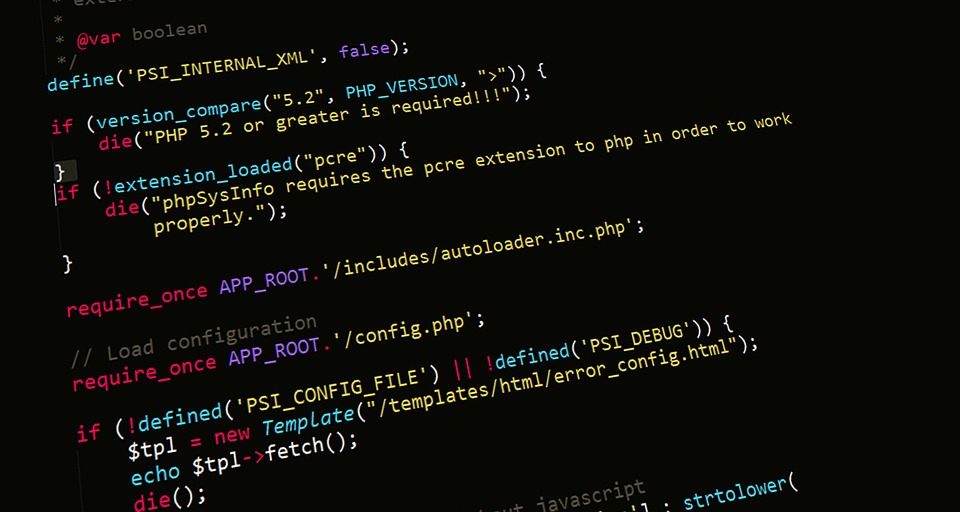While the subject of PHP Frameworks was already approached on our blog in 2016, in the software development world things move a tad faster than in other industries, so we thought an update on the topic might be interesting. PHP is still the most popular server-side programming language for websites, with big names like Wikipedia.org, WordPress.com or Baidu.com being powered by it. According to this w3techs.com report, even if PHP 7 has been around for a while now, it’s used by just 15.3% of the websites who are based on PHP, while 83.9% of the website applications built with PHP are still using the version 5.
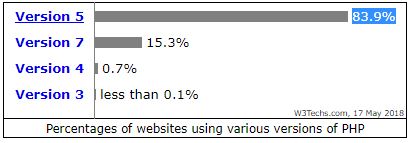
One interesting mention here is: even if in the past 5 years we’ve seen a steady increase in the use of JavaScript and Python, corelated with a decrease in interest for Java or PHP, companies are still choosing the safe and stable option, instead of the “novelty” or “trendy” factor, with a lot of new projects being started on frameworks that either have a commercial support or are backed by a strong community. If you need consultancy on what programming language or what framework to choose for your project, please feel free to get in touch with us.
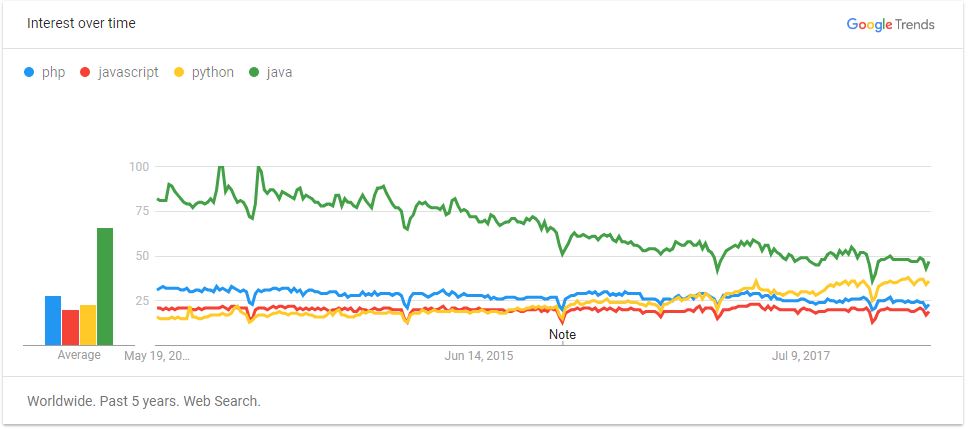
Getting back to PHP Frameworks, in our previous article we’ve listed few of the features of Laravel, Phalcon, Symphony, Zend and CodeIgniter. So let’s see how those framework have performed in 2017 and 2018 and also compare that with the past 5 years. And no, we have not excluded important frameworks like CakePHP, Yii 2 or Fuel PHP, we just prefered writing about those that our team tried out in multiple projects – and multiple is the keyword here.
Laravel – CodeIgniter – Phalcon – Zend – Symfony in 2017
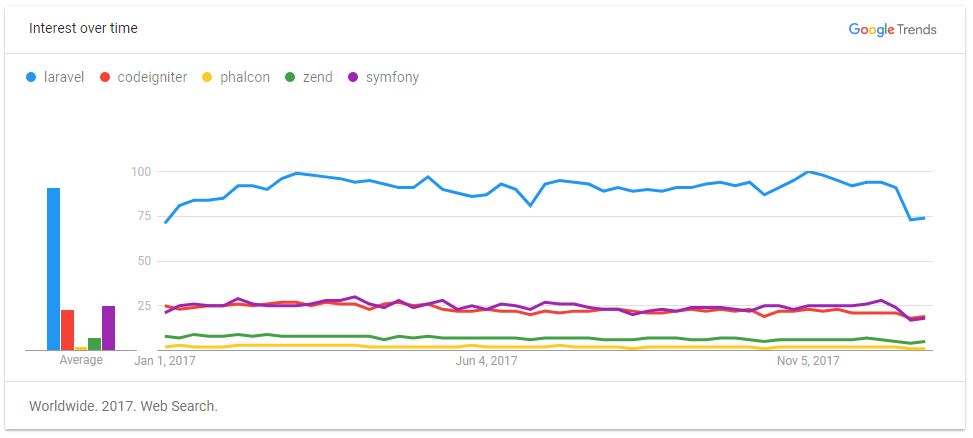
Laravel – CodeIgniter – Phalcon – Zend – Symfony in 2018
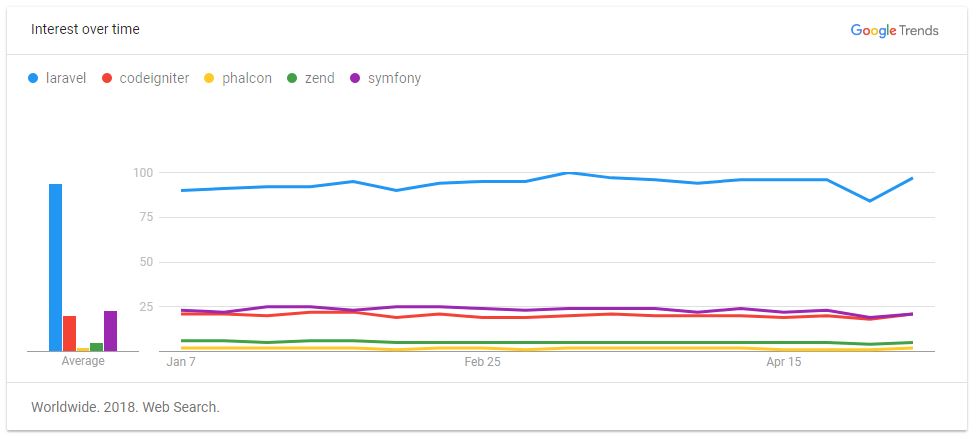
Laravel – CodeIgniter – Phalcon – Zend – Symfony in the past 5 years
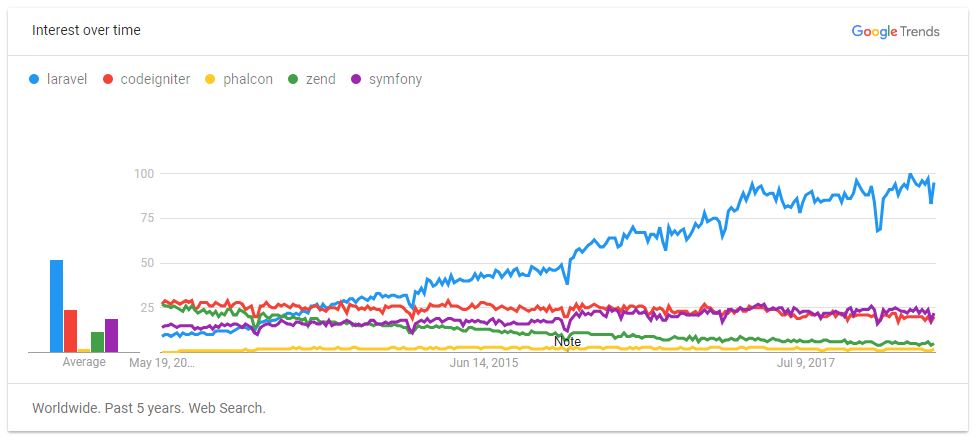
After a steep rise in interest up until 2017, Laravel held the top of the leaderboard for the past 12 months and proved, once again, that rapid development capabilities, a smart Query builder, an easy to learn Templating Engine and extensive documentation will make pretty good reasons for a developer to choose a framework in the detriment of another.
Quick mention here: Laravel is based on Symfony, but additions like Homestead, Artisan or Eloquent are reasons why so many developers find it so easy to deploy projects rapidly using Laravel.
If you want to approach the “microservices” topic, then you need to have a look over Lumen. In many scenarios, you may be better off with this micro-framework.
Conclusion
While in many cases the developer or the software development company does not have the option of selecting the PHP framework that is going to be used for the project, in some, there is. And exactly for those scenarios, the software architect can suggest a technology that provides advantages for both the client and the software provider. Working with a framework that is based on MVC architectural pattern, implements a fast migration system for databases, promotes Unit-Testing, is stable & is backed by a large community, and has a lot of other nice tools would mean a better time-to-market, which translates to a win-win situation for such a business relation.
If you’re a PHP programmer, a client, a project manager or a business analyst and you’ve had to choose a PHP framework in the past, based on what factors have you made your decision? We’d love to hear your thoughts.

